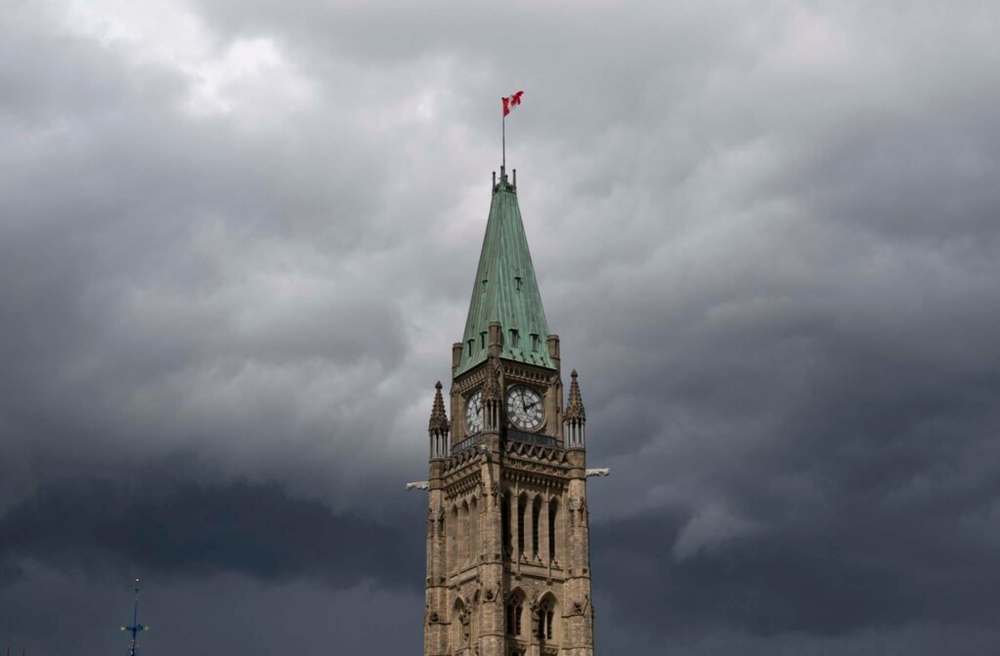Freedom of information requests languish in Ottawa
Advertisement
Read this article for free:
or
Already have an account? Log in here »
To continue reading, please subscribe:
Monthly Digital Subscription
$19 $0 for the first 4 weeks*
- Enjoy unlimited reading on winnipegfreepress.com
- Read the E-Edition, our digital replica newspaper
- Access News Break, our award-winning app
- Play interactive puzzles
*No charge for 4 weeks then billed as $19 every four weeks (new subscribers and qualified returning subscribers only). Cancel anytime.
Read unlimited articles for free today:
or
Already have an account? Log in here »
Hey there, time traveller!
This article was published 20/10/2020 (1274 days ago), so information in it may no longer be current.
OTTAWA — The federal government is keeping its transparency obligations on the backburner, with less than half of national agencies and departments fully processing freedom of information requests amid the COVID-19 pandemic.
Data obtained by the Free Press also show the vast majority of federal departments opted against deeming FOI requests a critical service, during a time of unprecedented government spending.
“It’s pathetic,” said Toby Mendel, head of the Centre for Law and Democracy, a globally respected transparency organization based in Halifax.

“If the government thought it was important, it wouldn’t be at that point. Nothing else they think is important is struggling like that, and I think it’s completely unacceptable.”
Under the federal Access to Information Act, every Canadian has a right to request government records for a $5 fee. Agencies are obligated to provide the information within a month, unless it’s exempted for legal or privacy grounds.
Yet, underfunding has created years-long delays in informing Canadians about how their government spends money, the role of lobbyists in shaping regulations, and whether programs are actually working.
In mid-March, the novel coronavirus pandemic shut down nearly all government offices. A month later, an internal document shows 55 of 80 core federal agencies deemed FOI requests “not a critical service” as of the week of April 20, while another 10 deemed the requests “in part a critical service.”
It meant FOI staff were at the back of the queue for getting government Internet connections set up at home.
Since then, the Treasury Board has surveyed FOI offices weekly, and found a gradual return to work — but it has never recorded more than 49 per cent of agencies back at full capacity.
As of Sept. 28, the most recent survey available, 70 of 144 agencies had fully returned to processing FOI requests. Some had ceased processing requests entirely, up until mid-July.
Mendel’s group has spent years documenting and ranking countries’ FOI systems, and has helped UNESCO craft global guidelines for how governments can maintain transparency during the pandemic.
He notes provincial governments have found ways to keep their systems functioning, and other countries have set strict criteria on how long FOI requests can be delayed.
Mendel argues a functional FOI system is needed at a time when federal and provincial governments have curtailed legislative debate and shut down inconvenient committee hearings during the pandemic.
“Accountability is of massively heightened importance at this time, given the enormous (spending) programs, or in terms of restricting our rights, which may or may not be entirely justified… and the limited operation of other accountability mechanisms,” he said.
The minister in charge of FOI, Jean-Yves Duclos, was not available for an interview, but his office cited pandemic restrictions impacting governments across the world.
“The Treasury Board (of Canada) Secretariat is providing guidance to institutions to continue to make best efforts to respond to (FOI) and Privacy Act requests, in accordance with operational realities,” wrote spokesman Karl Sasseville.
“Openness, transparency and accountability are guiding principles of the government.”
Yet, Mendel said, if that was the case, many more federal agencies would be processing FOIs, as normal.
“This is a human right, under international law and also the Canadian constitution; you don’t go halfway back to rights,” Mendel said.
“It just reflects the attitude of not only the public authorities, but also a large number of individual bureaucrats, that this is not an important thing. I think it speaks to their attitude about accountability.”
He argues delays are understandable when decades-old paper records are archived in buildings with safety restrictions. But otherwise, he said FOI staff must be among the first to get back to their offices, and should already be given good enough technology to do their jobs from home.
dylan.robertson@freepress.mb.ca
History
Updated on Thursday, October 22, 2020 8:50 AM CDT: Clarifies that less than half of national agencies and departments are fully processing freedom of information requests


